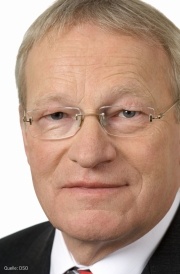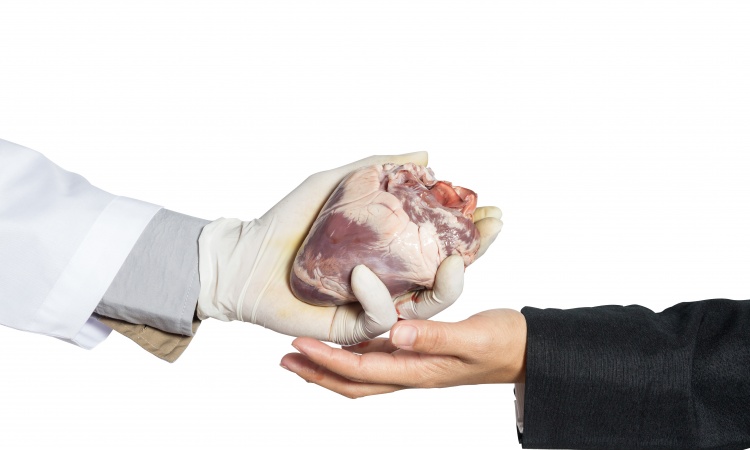The 2009 Organ Donation Congress
Thousands still die on transplant waiting lists. Karoline Laarmann reports from Berlin
In 2008, EU organ transplants totalled 27,809, but, as of 31 December 2008, patients still on waiting lists numbered 63,283 and 3,812 of them died on that list. During 5th World Day and 11th European Day of Organ Donation held in Berlin this October, experts and patients from all over the world met to raise public awareness that, despite international transplants progress and successes, and despite the fact that thousands upon thousands of people could help by donation, organ shortage remains the big issue.

The German Organ Transplantation Foundation (DSO) had not only succeeded in combining a large-scale, public event on organ donation but also in organising a top-class scientific congress – the 10th International Organ Donation Congress of the International Society for Organ Donation and Procurement (ISODP).
In front of the Brandenburg Gate, under the banner ‘You have the power to donate life – be an organ donor’ well-known artists, bands and celebrities, on stage and seen on huge video screens, as well as promotional stands helped to raise organ donation awareness.
Europe has an average of 16.1 donors per one million inhabitants: ‘Not enough!’ said Professor Günter Kirste, Medical Director of the DSO and President Elect of the ISODP. ‘And, in many places, commitments are too slack. Spain, with more than 34 donors per one million residents, holds the world record in organ donation, not least because its public health service consistently demands public cooperation with regards to organ donation. This is particularly why the different structures in hospitals, discrepancies in medical standards as well as country-specific laws should be given more consideration and analysis within the international discussion.’
Transplant tourism
Topics such as corruption and transplant tourism can only be tackled and prevented through joint, national regulations. Only in February 2008 did representatives from 78 countries, meeting in Istanbul, pass a unanimous joint declaration against organ trade and transplant tourism. It aimed to counteract uncertainty among the general public regarding the dangers of the commercialisation of organ trading. Whereas there have been no cases of organ trading in Western Europe, shocking news about ‘organ mafias’ in neighbouring countries, e.g. Moldova, Romania or Turkey, do not make for good publicity here, either, Prof. Kirste pointed out. That is why, in June 2008, Germany launched the biggest awareness-raising campaign yet on this subject -- the Pro Life. Pro Organ Donation initiative, under the patronage of Federal Chancellor Angela Merkel, aims to motivate people to think about organ donation, become informed and decide in its favour. By international comparison, the number of donors in Germany is still quite low.
Registering outcomes
According to Prof. Kirste it would make sense to introduce a register on the long term outcome of transplants to ensure cross-national quality assurance: ‘For example, Eurotransplant, in Leiden, the Netherlands, the international central office for donor organs, works with clearly defined, medical criteria in the allocation of organs. A long-term study to check if these criteria -- such as tissue factors -- are the right ones, would be helpful as the survival rates for transplant patients can be very long term. This is why the results of a transplant should be monitored not just for one or two years but over a period of 10-20 years.’
Education
The professor also considers training for hospital doctors as a basic prerequisite for successful organ donation and transplant management. Many potential organ donors in hospitals are still not identified, or not reported to the transplant coordinator. Intensive care and intensive nursing care play a key role in this: ‘There is insufficient knowledge amongst doctors working in intensive care as to when a patient can be considered as a donor because they are only rarely confronted with these types of cases. Many are not even aware that there is no longer an age limit for organ donation. Therefore the topic should be much more integrated into general medical training. Hospitals need to learn to perceive participation in the process of organ donation as part of their internal quality management.’
Apart from these manifold aspects, educating the general public is an important part of counteracting the worldwide shortage of donor organs in the long term, he explained. ‘It is not only the participation of hospitals that is crucial but also that of the general public. The presumed consent solution (= patients who do not carry a written note against organ donation with them can automatically be considered as donors if brain death has been confirmed) is often regarded as the universal remedy to increase the number of donors. However, this solution on its own is no guarantee of success. Even in countries where this presumed consent scheme is in force, e.g. Spain, Belgium or Austria, the law is not enforced rigorously but the relatives are consulted in each individual case. This proves that the issue in question is not the legal background but how informed people are. Fundamentally, most people agree with the concept of organ donation. However, once they are confronted with the death of a relative and when they have to make a decision on behalf of that relative they are unsure.’
Therefore, the DSO also sees the need to improve the way relatives of organ donors are looked after. Respective training programmes for transplant coordinators and officials are to ensure emphatic care for grieving relatives whilst simultaneously acting as the advocate of the person on the waiting list and asking for a decision in favour of organ donation.
This year’s Organ Donation Congress offered a successful platform for discussion of the complex of problems surrounding organ donation. It became clear that, in such a delicate topic of discussion in which decisions are made on life and death, doctors are not only dealing with medical issues but also ethical and social issues.
12.11.2009





